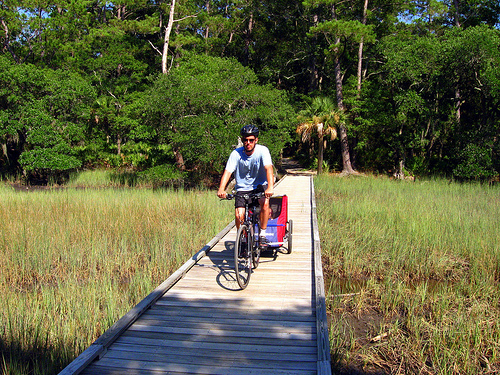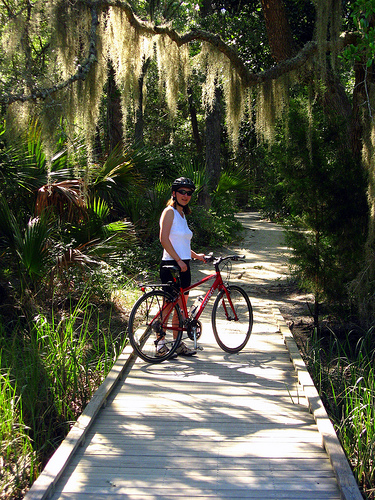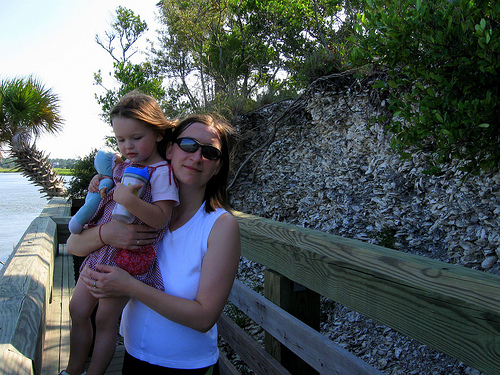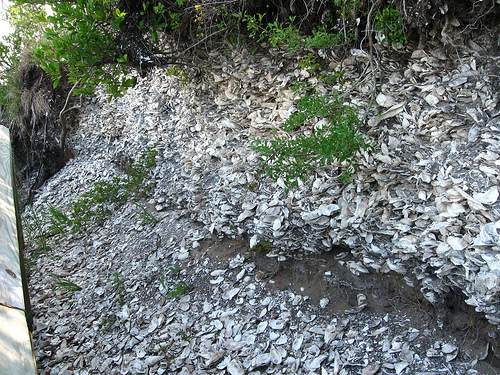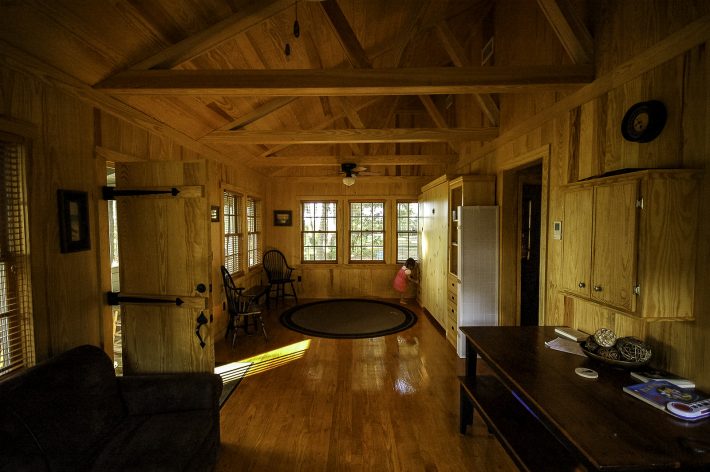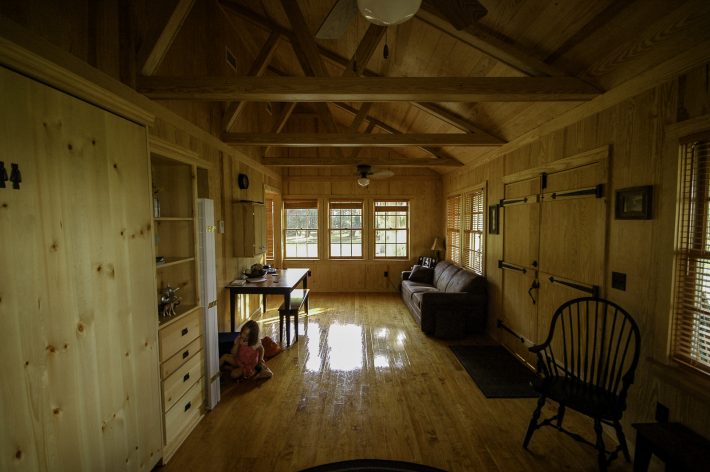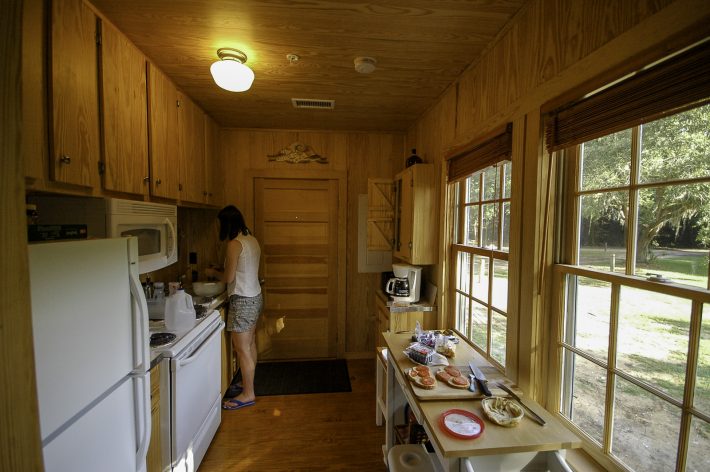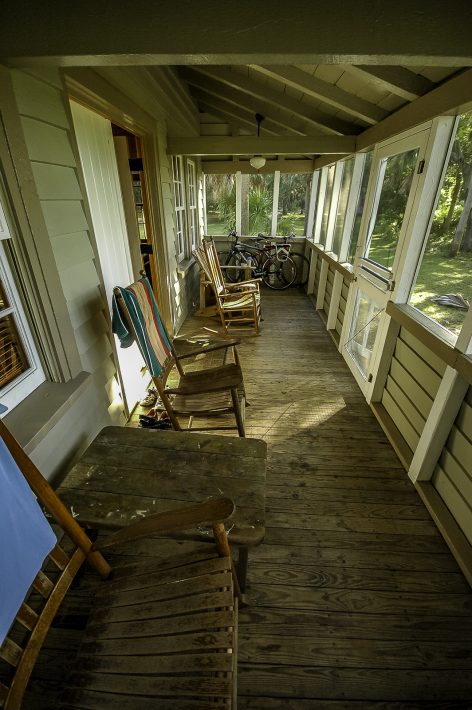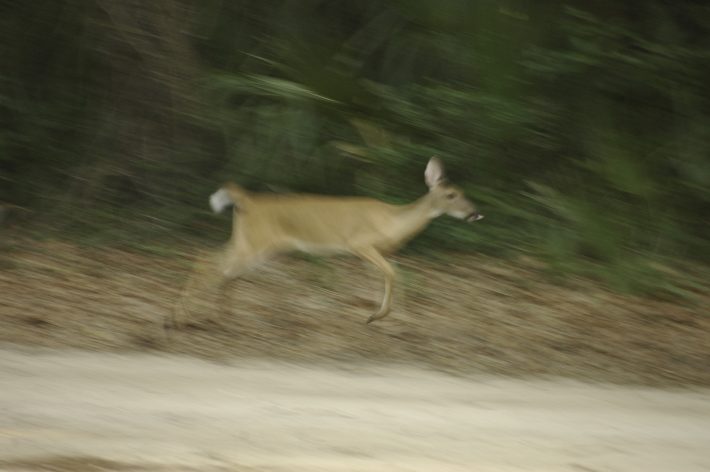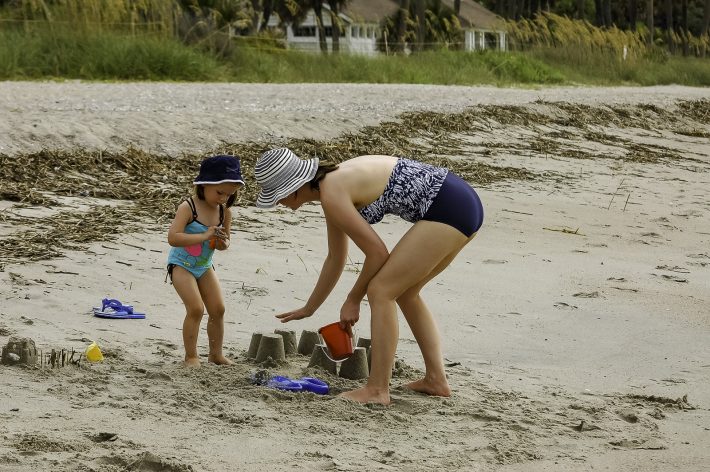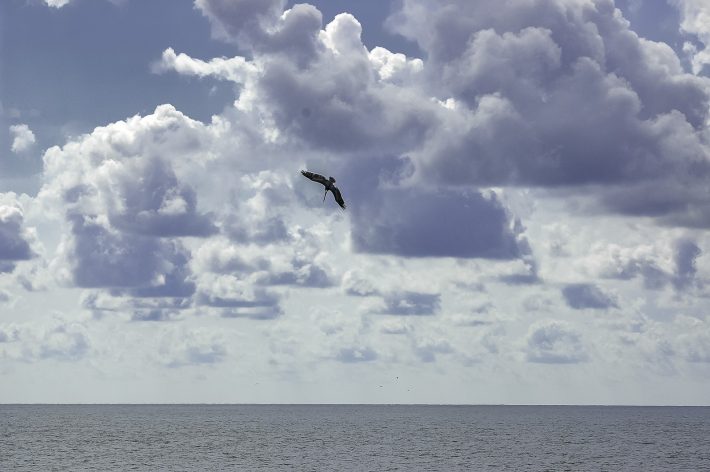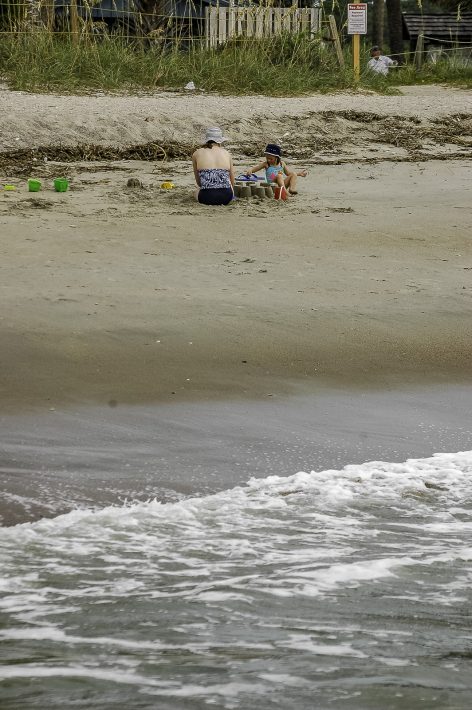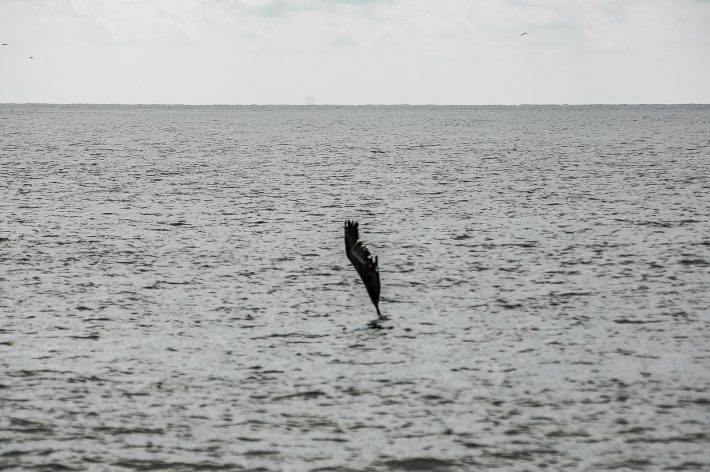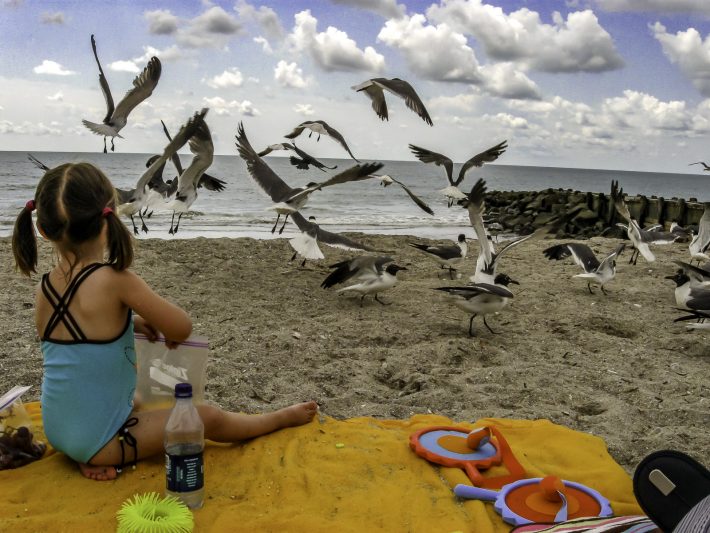This was the afternoon activity for our first morning on the beach. I didn’t combine the posts because I had yet to transfer the pictures from the small Canon we borrowed from Nana and Papa.
The first few days, we spent our afternoons on bikes, with L in a trailer. The state park at Edisto Island has a few miles of packed-shell bike paths with wooden bridges over the marshes. After negotiating the treacherous sand access road (riding on sand without knobby tires is much like riding in slushy snow that’s layered atop pure ice: there’s as much lateral movement — sometimes the front tire, sometimes the rear, sometimes both simultaneously — at times as there is forward movement), it was really a pleasure.
Who would enjoy riding in an environment like this?
No strenuous climbs, as it was coastal terrain. No merciless sun, as it was all in a forest filled with Live Oaks and Spanish Moss. It was, in every sense, leisurely riding.
Several friends thought we were nuts to go cycling in a South Carolina July. The ocean breeze combined with unseasonably cool weather, though, and it was an absolute joy. Except for the sandy road.
Our first destination: a prehistoric oyster shell bank. No one knows the significance of the location; no one knows why Native Americans chose this particular spot to eat oysters (and lots of them). But we do know that the mound is some ten percent of its size when discovered by Spanish explorers in the seventeenth century.
Perhaps this was inspiration for Lewis Carroll:
‘A loaf of bread,’ the Walrus said,
‘Is what we chiefly need:
Pepper and vinegar besides
Are very good indeed —
Now, if you’re ready, Oysters dear,
We can begin to feed.’
Or perhaps not. All the same, it was a frabjous day, and we chortled in our joy all the way back to the cabin.
